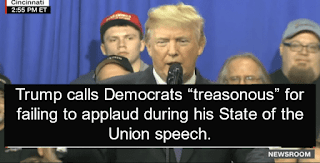Doug Ford styles himself as The Great Disruptor. But, the truth is, he's not very good at disrupting things for his own benefit. Martin Regg Cohn writes:
The pushback over Ford’s latest cuts — in health care, education, libraries, transit and forestry — has left his Progressive Conservatives off balance. And off message.
Ford revels in picking fights with the federal and municipal partners he views as adversaries. But as the premier and his cabinet are slowly learning, conflict for conflict’s sake is a poor way to govern Canada’s biggest province.
He loves to pick fights. But, these days, he's picking fights with everyone:
When you are fighting everyone at once — Parliament Hill and city hall, school boards and teachers, librarians and legal aid lawyers — the static makes it harder to be heard. And the mixed messages make it impossible to be persuasive.
Recently, Ford announced a massive subway expansion in Toronto. But his cuts to Toronto's public health services have drowned out his message about expanding the subway:
Ford mounted a pre-budget offensive by boasting of a $28-billion transit investment. But he quickly found himself on the defensive over a $1.1-billion cut in gas tax payments that will hobble Toronto’s transit operations for the next decade — a classic case of bad news cancelling out good news.
And this month’s provincial budget promised hospital funding will increase slightly, but it is also cutting funding by $1 billion over 10 years to Toronto’s board of health — hamstringing its services amid falling vaccination rates and rising overdoses.
The man who inherited his father's decal business thinks that political messaging can be reduced to bumper stickers:
Ford clearly sees the world through stickers — whether a bumper-sticker slogan like “buck-a-beer,” or a food-safety sticker on a restaurant window. Not to mention forcing every gas station to slap his propaganda stickers on every gas pump in Ontario, just so our premier can pour gasoline on his $30 million carbon tax fight with Ottawa.
Bumper stickers don't work when the stuff hits the fan. And, for Ford, lots of stuff is hitting the fan.
Image: Get Smart Digital



























